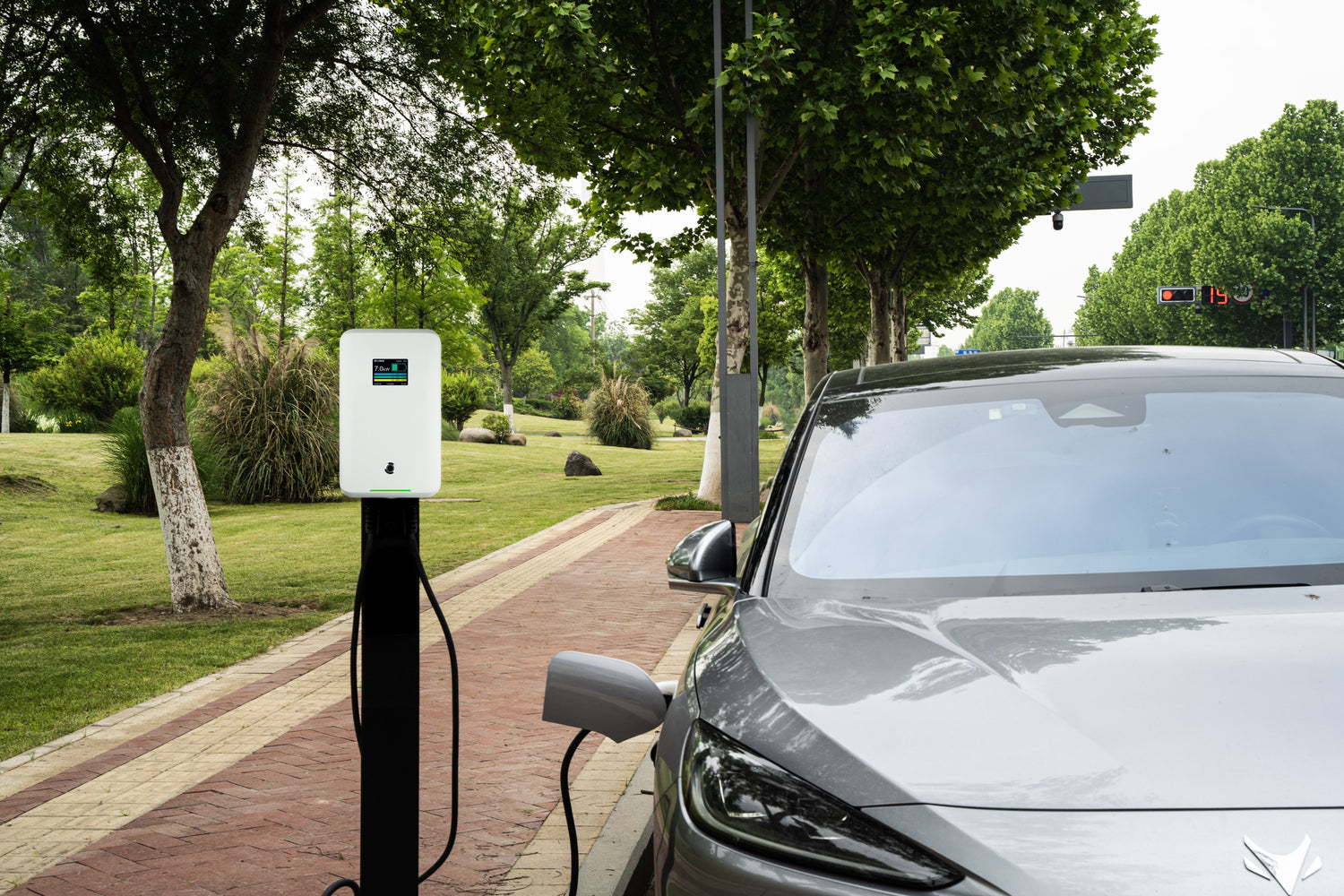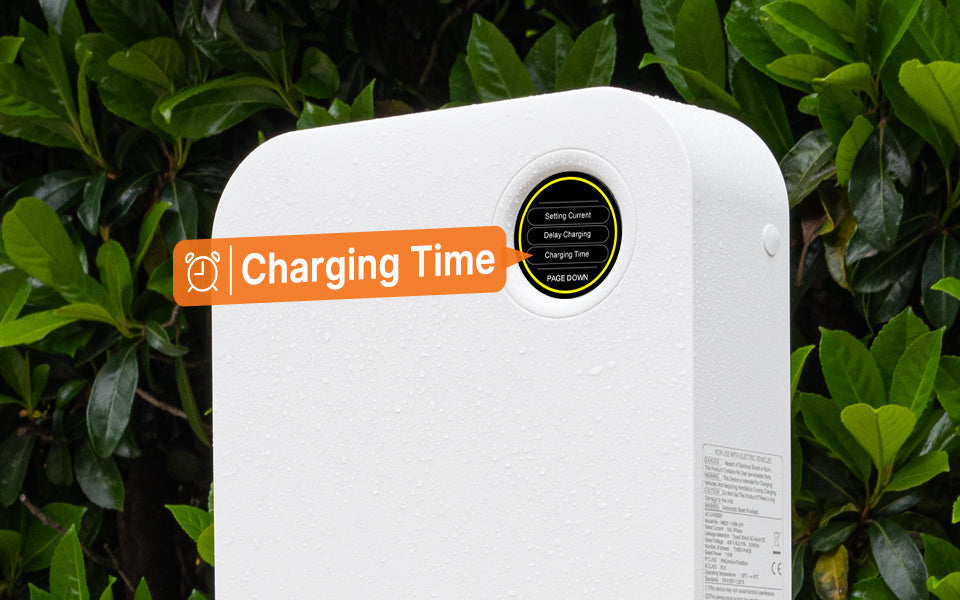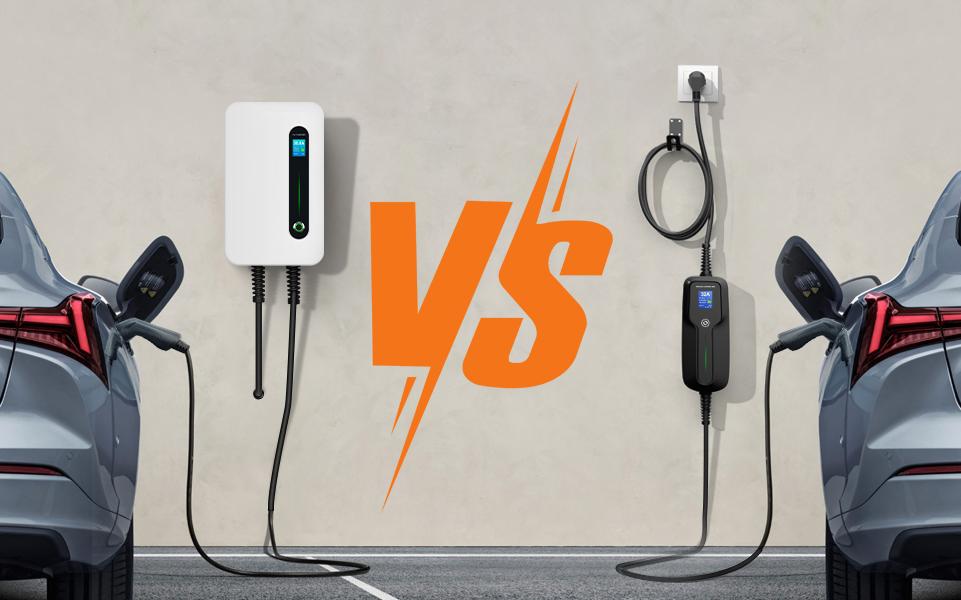Alors que les véhicules électriques continuent de gagner du terrain dans le monde entier, la demande en solutions de recharge efficaces et rapides n'a jamais été aussi forte. Parmi les différentes options de recharge disponibles, la borne de 11 kW La borne de recharge pour véhicules électriques est un choix populaire auprès de nombreux propriétaires de véhicules électriques. Mais pourquoi cette demande est-elle en hausse actuellement ?
Dans ce blog, nous'Nous explorerons les principaux facteurs à l'origine de l'intérêt croissant pour les 11 kW. Véhicule électrique Les chargeurs sont évalués selon plusieurs critères, notamment la vitesse de charge, les coûts d'installation et leur adéquation aux besoins de l'utilisateur. Poursuivez votre lecture !

1. Temps de charge équilibré⏳
🔋Une puissance de 11 kW Véhicule électrique Ce chargeur offre un bon compromis entre vitesse et praticité. Il charge plus rapidement qu'un chargeur de 3,6 kW. et 7Les chargeurs de 22 kW sont moins énergivores et moins coûteux qu'un chargeur de 22 kW.KChargeur W.
🔋Pour la plupart des propriétaires ou des lieux de travail, une puissance de 11 kW est suffisante. Véhicule électrique Ce chargeur est idéal car il permet de recharger complètement un véhicule électrique en un temps raisonnable (généralement quelques heures), sans être trop rapide, ce qui n'est pas toujours nécessaire. C'est particulièrement pratique pour les trajets domicile-travail ou les déplacements sur de courtes distances.
2. Coûts d'installation et équilibre de puissance
🔋3,6 kW véhicule électrique portable Les bornes de recharge sont plus lentes, ce qui peut s'avérer problématique pour de nombreux utilisateurs. La recharge complète d'un véhicule électrique peut prendre 24 heures, voire plus, ce qui n'est pas idéal pour ceux qui utilisent fréquemment leur voiture.
🔋7 kW boîte murale chargeurs offre un temps de charge plus rapide que 3,6 kWmais comparé à 11 kW, ils peuvent encore semblent insuffisantes, notamment pour les véhicules électriques dotés de batteries plus volumineuses ou pour ceux qui souhaitent des options de recharge plus rapides.
🔋22 kW stations de recharge pour véhicules électriques La recharge est très rapide, mais elle engendre des coûts d'installation élevés, des exigences électriques plus importantes et des problèmes de compatibilité, car tous les véhicules électriques ne peuvent pas supporter une puissance de 22 kW. recharge. Installation également prévue d'une batterie de 22 kW. L'installation de bornes de recharge nécessite souvent la modernisation de l'infrastructure électrique locale, ce qui peut s'avérer coûteux.
3. Efficacité en matière de charge et de coûts du réseau
🔋Dans de nombreuses régions, 11 kW Les chargeurs sont plus économes en énergie que ceux de 22 kW. chargeurs. Ils offrent une charge plus rapide que 3,6 kW. ou 7 kW mais sans trop solliciter le réseau électrique local.
🔋Une puissance de 7 kW ou 11 kW Le chargeur est plus susceptible d'être compatible avec la plupart des installations résidentielles ou commerciales sans nécessiter de mises à niveau électriques importantes, ce qui en fait une option plus pratique dans de nombreuses régions.
4. Besoins de facturation des utilisateurs
🔋3.6 kW véhicule électrique portable Les chargeurs peuvent convenir aux utilisateurs qui ne parcourent que de courtes distances au quotidien, mais pour les propriétaires de véhicules électriques équipés de batteries plus volumineuses ou ceux qui parcourent de plus longues distances, la lenteur de la charge peut s'avérer trop contraignante.
🔋7KW boîte murale Les chargeurs de base peuvent suffire à certains utilisateurs, mais pour ceux qui ont besoin de recharges plus rapides ou qui utilisent leur voiture de manière plus intensive, une batterie de 11 kW est nécessaire. Véhicule électrique Les chargeurs offrent un bon compromis qui équilibre la vitesse de charge avec le coût et la consommation d'énergie.
5. Compatibilité et disponibilité
🔋11KW Véhicule électrique chargestations de maintenance sont compatibles avec la plupart des véhicules électriques, notamment sur le marché européen où de nombreux modèles populaires (comme Tesla, BMW, Audi, etc.) prennent en charge cette puissance de charge.
🔋22 kW Véhicule électrique chargestations de maintenance ne sont pas universellement compatibles avec tous les véhicules électriques, et beaucoup Véhicule électriqueCes appareils peuvent nécessiter des adaptateurs ou du matériel de charge spécialisé, ce qui limite leur utilisation pratique. Cela porte à 11 le nombre d'appareils nécessitant un adaptateur ou un matériel de charge spécifique.KLes chargeurs W constituent un choix plus sûr et plus polyvalent pour le propriétaire moyen d'un véhicule électrique.
6. Politiques et incitations gouvernementales
🔋De nombreux gouvernements européens offrent des incitations pour les 7 kW. et 11 kW Véhicule électrique les chargeurs car ils sont considérés comme efficaces pour la plupart des applications résidentielles et commerciales, sans exercer de pression excessive sur le réseau électrique.
🔋3.6KW véhicule électrique portable Les chargeurs sont peu coûteux mais lents, et 22KW Véhicule électrique Les bornes de recharge sont coûteuses et nécessitent une infrastructure plus importante. Cela porte le total à 11.KW Véhicule électrique chargestations de maintenance un juste milieu qui bénéficie souvent de subventions et d'incitations gouvernementales.
7. Considérations relatives à l'espace et à l'alimentation électrique
🔋22KW Véhicule électrique Les chargeurs nécessitent souvent une alimentation électrique plus puissante et des environnements d'installation plus complexes, ce qui les rend moins adaptés aux habitations ou aux petits espaces commerciaux.
🔋11KW Véhicule électrique Les chargeurs sont plus flexibles en termes d'espace et de besoins en énergie, et ils peuvent être installés dans la plupart des maisons ou des lieux de travail sans modifications importantes du système électrique, ce qui les rend plus adaptés à un usage quotidien.
✨Recommandation: Morec Recharge pour véhicules électriques de 11 kWrs (Bornes de recharge portables pour véhicules électriques + bornes de recharge murales)
💡Conclusion:
Le principal avantage d'un 11KW borne de recharge pour véhicules électriques Ce chargeur offre un bon compromis entre vitesse de charge et praticité. Il est plus rapide que le 3.6KW et 7KW Véhicule électrique les chargeurs, tout en étant plus abordables et plus faciles à installer que les chargeurs 22KW Les chargeurs sans fil constituent le choix idéal pour la plupart des utilisateurs, offrant la vitesse nécessaire à un usage quotidien sans nécessiter d'investissements importants dans les infrastructures ni exercer une pression inutile sur le réseau électrique.



